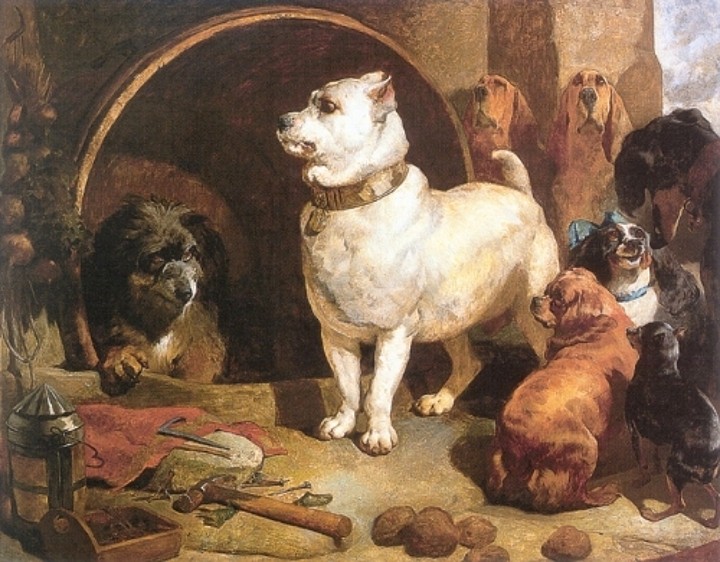On Madness
Apr. 5th, 2023 02:30 pmLater in life, Diogenes grew tired of the stubborn Athenians and decided to find someplace where his wisdom would be better-heeded; but the ship he was sailing on was set upon by pirates, and he was captured and sold into slavery. The slave-trader asked Diogenes what he was good at. "I govern men. In fact, see that man there," he pointed, "sell me to him. He's looking for a master, rather than a slave." The man's name was Xeniades, and as it turned out, he was indeed looking for a teacher for his children. The children started taking after Diogenes's coarse manner, but even so, Xeniades was fond of him, since his children grew to be of outstanding character. Diogenes must have been satisfied, too, since when some of his disciples learned of his whereabouts and attempted to ransom him, he told them, "I cannot be ransomed, since I am no slave: after all, it is the lot of a slave to be in constant fear, but I have no fear of Xeniades; rather, he is afraid of me!"
Xeniades bragged of Diogenes to his friends, and one of these—a wealthy money-changer—had a slave named Monimus. Monimus was constantly overhearing Xeniades speaking of Diogenes, and became fascinated and determined to learn from the man himself. But this was impossible as a household slave, so he pretended to be insane until his master finally discarded him. Monimus immediately went to study under Diogenes, and in time under Diogenes' pupil, Crates.
One day, the former master saw Monimus following Crates around—both sane, of course, but homeless and living lives of utter simplicity—and he said to himself, "Oh dear, he's even crazier than I thought!"
